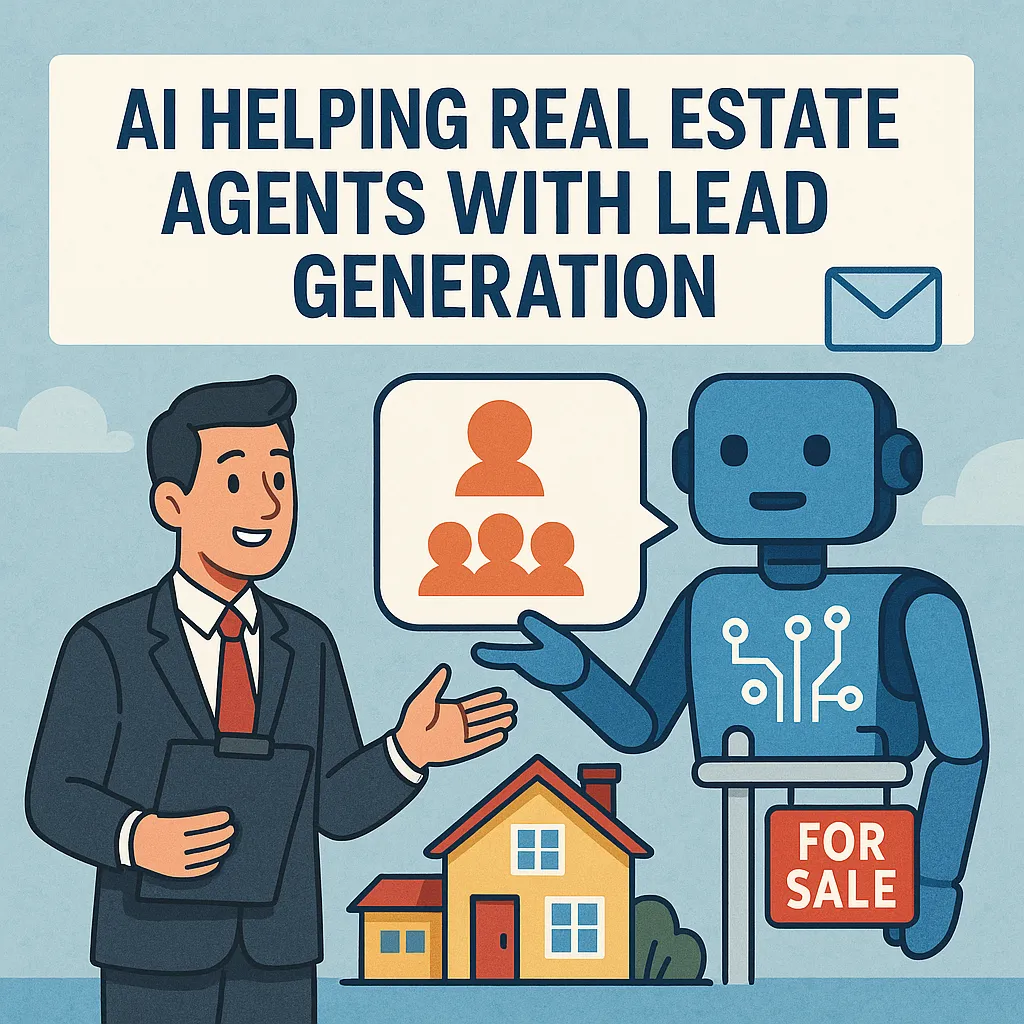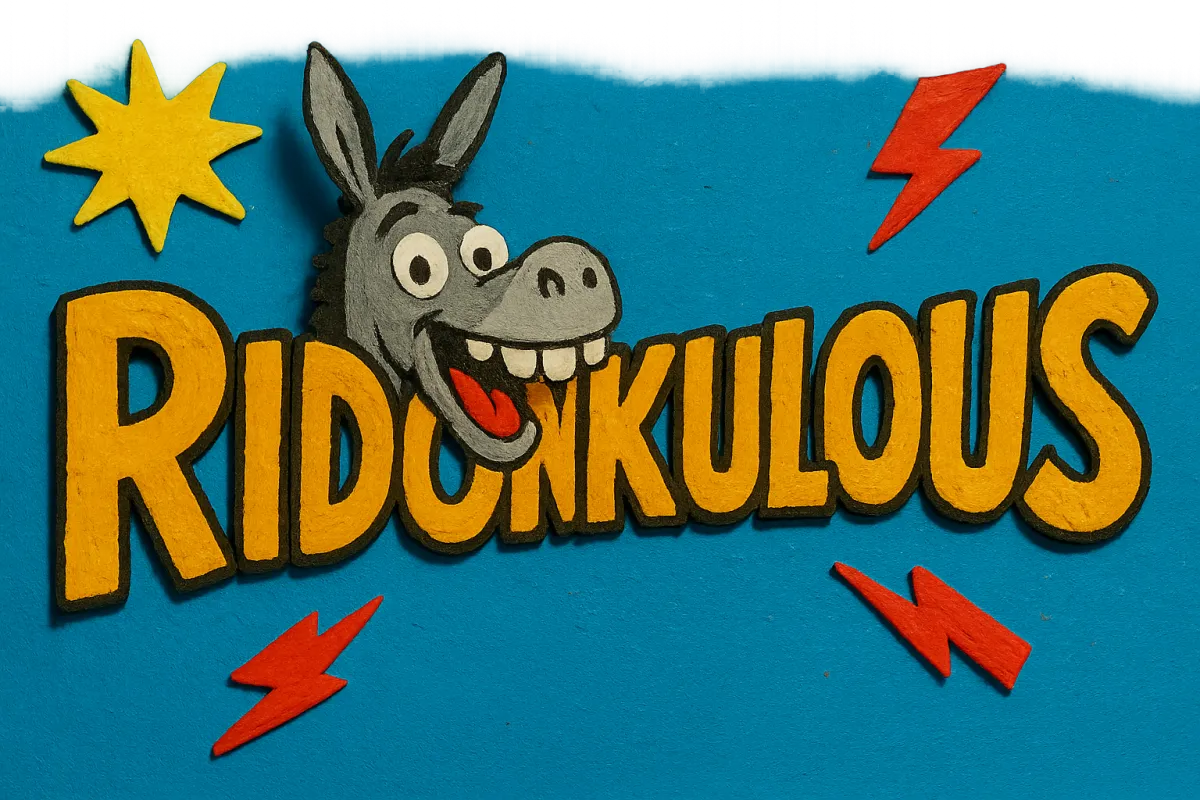
How AI is Revolutionizing Lead Generation for Real Estate Agents
In the fast-paced world of real estate, agents are always on the lookout for that golden lead — the one that converts smoothly into a successful deal. But in a competitive landscape where buyers and sellers are more informed and discerning than ever, traditional lead generation techniques are often not enough. Enter artificial intelligence (AI), the game-changer that’s giving real estate agents a significant edge.
Today, AI for real estate agents is no longer just a buzzword — it’s a tool that’s helping agents identify, nurture, and convert leads with remarkable precision. If you’re still relying on cold calls and mass emails to build your client list, you might be missing out on a smarter and more efficient way to grow your business. So, let’s explore how AI lead generation for real estate agents is transforming the industry.
Understanding AI in Real Estate: What’s the Big Deal?

At its core, AI is all about mimicking human intelligence to analyze data, identify patterns, and make predictions. In the context of real estate, AI helps agents sift through vast amounts of data to determine who is most likely to buy or sell a property, when they’re likely to make that decision, and what type of property they’re interested in.
But AI doesn’t stop at data crunching. It goes a step further by automating tedious tasks, enhancing customer engagement, and improving the overall lead nurturing process. And the best part? AI works tirelessly 24/7 — no coffee breaks required!
1. Predictive Analytics: Identifying High-Quality Leads
Wouldn’t it be great if you could predict which of your leads are most likely to close a deal? Well, with AI for real estate agents, that’s no longer wishful thinking. AI leverages predictive analytics to analyze historical data, identify buying patterns, and forecast future behavior.
How It Works
AI algorithms analyze data from multiple sources — website visits, social media interactions, email responses, and even online property searches. Based on this data, AI assigns a lead score to each potential client, helping agents prioritize leads that are most likely to convert.
🔍 Example: Let’s say a prospective buyer spends an hour exploring high-end condos on your website and fills out an inquiry form. AI recognizes this behavior, assigns a high lead score, and notifies you to follow up. Meanwhile, a lead who visited your website once six months ago gets a lower score, saving you valuable time.

2. Chatbots: The Always-On Virtual Assistant
Ever feel like you’re juggling too many inquiries at once? AI-powered chatbots are here to lighten the load. These virtual assistants can handle initial inquiries, answer common questions, and even schedule property viewings — all while you’re out closing deals or enjoying your well-deserved weekend.
Why Chatbots Matter
Chatbots powered by AI don’t just provide generic responses; they can be programmed to offer personalized information based on the user’s behavior. By engaging leads instantly, chatbots prevent potential clients from losing interest and moving on to the competition.
🤖 Professional Humor Alert: Think of a chatbot as your overachieving intern who never sleeps, never asks for a raise, and never forgets to follow up with leads. Now, who wouldn’t want that?
3. Personalized Marketing Campaigns: Tailoring Content to Buyer Intent
AI has made one-size-fits-all marketing campaigns obsolete. With AI, real estate agents can deliver personalized marketing messages that speak directly to the needs and preferences of individual clients.
How AI Enhances Personalization
AI tools analyze customer data to create highly targeted email campaigns, social media ads, and property recommendations. These personalized campaigns nurture leads by showing them properties that match their preferences, increasing the likelihood of conversion.
🎯 Example: Imagine an AI system that notices a lead consistently exploring waterfront properties in Miami. The system then automatically sends them listings of luxury condos by the beach, along with financing options and nearby amenities. This level of personalization increases the chances of converting that lead into a client.
4. Lead Nurturing with Automated Follow-Ups
Lead nurturing is a delicate art — follow up too soon, and you seem pushy; wait too long, and you risk losing the lead. Thankfully, AI takes the guesswork out of the equation.
Smart Follow-Up Sequences
AI automates follow-up emails and text messages based on user behavior, ensuring that leads receive timely and relevant communication. These follow-ups can include property recommendations, market insights, and gentle nudges to schedule a consultation.
📬 Example: If a lead clicks on a virtual tour of a property but doesn’t schedule a viewing, AI can send a follow-up email offering similar listings or highlighting upcoming open houses. This keeps the lead engaged without requiring manual intervention.
5. AI-Powered CRM Systems: Keeping Your Pipeline Organized

Customer Relationship Management (CRM) systems have been around for years, but when infused with AI, they become a powerhouse for lead generation and management.
AI + CRM = Lead Management Nirvana
AI-powered CRMs automatically update lead information, track interactions, and provide insights on the best times to reach out. They can even detect when a lead is showing renewed interest and prompt agents to engage at the right moment.
💼 Professional Humor Alert: An AI-powered CRM is like that hyper-organized assistant who color-codes your schedule, reminds you of important calls, and keeps track of client birthdays — all without asking for a raise.
6. Virtual Property Tours: Engaging Leads from Afar
In the age of remote work and digital convenience, virtual property tours have become a must-have tool for real estate agents. AI takes virtual tours to the next level by offering interactive, 3D tours that allow prospective buyers to explore properties from the comfort of their homes.
Why Virtual Tours Matter
Virtual tours powered by AI can capture detailed buyer engagement data, such as which areas of the property they focus on and how much time they spend on each room. This data helps agents tailor their follow-up conversations to address the buyer’s specific interests.
🏡 Example: If a lead spends extra time examining the kitchen during a virtual tour, AI can prompt the agent to highlight features such as high-end appliances or custom cabinetry during the follow-up conversation.
7. AI-Powered Social Media Advertising: Reaching the Right Audience
Social media is a goldmine for real estate lead generation, but only if you know how to target the right audience. AI helps by analyzing user behavior and preferences to create hyper-targeted social media ads.
The Power of AI in Social Media Ads
AI algorithms analyze data points such as location, income level, browsing history, and social media activity to serve ads that are most likely to resonate with potential buyers and sellers. This ensures that your advertising dollars are spent wisely and generate the best possible ROI.

📈 Example: An AI system might identify that millennials in a particular zip code are actively searching for starter homes. It then automatically creates ads showcasing relevant properties and directs those ads to the right audience.
8. AI-Driven Lead Scoring: Prioritizing the Hottest Prospects
AI doesn’t just generate leads — it helps agents focus on the ones most likely to convert. AI-driven lead scoring ranks leads based on their likelihood of making a move, helping agents allocate their time and resources more effectively.
How Lead Scoring Works
AI assigns scores to leads based on factors such as engagement levels, responsiveness, and online behavior. High-scoring leads are flagged for immediate follow-up, while lower-scoring leads are nurtured until they’re ready to take action.
🚀 Professional Humor Alert: AI lead scoring is like having a crystal ball that tells you which leads are ready to buy and which ones are just window shopping — minus the mystical fog.
AI is the Future of Real Estate Lead Generation

The real estate landscape is changing, and agents who embrace AI for real estate agents are positioning themselves for long-term success. From predictive analytics and chatbots to personalized marketing and lead scoring, AI is enhancing every aspect of lead generation and nurturing.
By leveraging AI lead generation for real estate agents, you can not only streamline your processes but also provide a superior client experience that sets you apart from the competition. And let’s be honest — who wouldn’t want an AI-powered assistant that works 24/7, never complains, and helps you close more deals?
So, if you’re ready to future-proof your real estate business, it’s time to let AI take the wheel. After all, in the world of real estate, staying ahead of the curve is not just an advantage — it’s a necessity.




